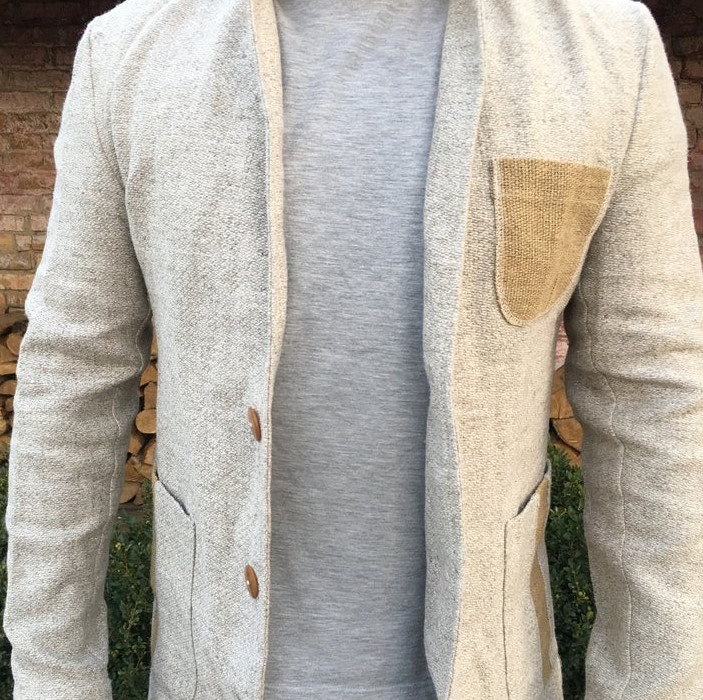Recommended Facts On Picking Hemp Clothing
Wiki Article
How Is Hemp More Environmentally Sustainable Than Cotton Regarding Water Usage And Pesticides?
Hemp is a much more eco-friendly crop than cotton for a number of reasons.
Hemp- Hemp has a low water requirement compared to other crops like cotton. It is considered a drought-tolerant plant that can flourish with minimal irrigation. In a lot of locations, hemp is cultivated using rainwater only. This makes it a great choice for water use.
Cotton- Traditional textiles are known for their water-intensive nature. The cultivation of cotton often requires extensive irrigation. This can deplete local resources and cause water shortage in areas that have limited water. Cotton farming has been criticized due to its high water use.
Pesticides, Herbicides
Hemp- Hemp naturally wards off many diseases and pests, which means it's less likely to need synthetic pesticides or herbicides. The use of chemicals in hemp is much lower than other crops like cotton. It is possible to cultivate organic hemp without using pesticides.
Cotton farming - Traditional cotton farming heavily rely on synthetic herbicides, pesticides and weed killers for the control of pests. These chemicals could have adverse environmental consequences, such as groundwater and soil contamination, damage to the other species as well as the production of pesticide resistant insects.
In conclusion hemp is more sustainable than cotton, in terms of pesticides and herbicides used, water usage and irrigation.
Hemp can be grown with only a little water, rainwater or irrigation.
Hemp's natural resistance to pests eliminates the need to apply synthetic pesticides.
Hemp is usually grown using fewer pesticides and herbicides than conventional cotton.
It's important to remember that environmentally sustainable and sustainable methods vary among cultivators. Organic farming practices can also improve sustainability by decreasing the usage of synthetic chemicals and increasing the quality of soil. In terms of clothing and textiles' environmental impact hemp and cotton fibers that are organically and sustainably manufactured can help reduce the impact of fashion on the environment. Have a look at the best more help about hemp clothing for website examples including hemp wear, hemp boxer shorts, mens hemp t shirts, nomad hemp wear, jungmaven t shirt, jungmaven clothing, american made hemp clothing, hemp apparel, hemp coat, hemp denim and more.

How Does Hemp Clothing Compare With Other Fibres In Terms Of Function And Quality?
Hemp clothing has several advantages in terms of function and design over traditional fabrics, aswell being more eco-friendly. Hemp clothing offers several advantages that make it an excellent environmentally friendly and high-performance option.
Hemp fibres are extremely permeable. They also absorb moisture, making hemp clothing very comfortable in all conditions. They help wick the water away from your body. This will keep you cool and dry and reduce the chance of bacteria and odors.
Temperature Regulation
Hemp clothing is known for its thermoregulating properties. It keeps your body warm in cold temperatures by retaining heat near to your body. It also helps keep you cool in warm conditions by allowing heat as well as water to go away. The natural temperature regulation reduces the requirement to change clothes.
Durability and Longevity
Hemp fibers are renowned for their the durability. Hemp clothing is generally more durable, resilient and wear-resistant than other materials like cotton. The long-lasting nature of hemp clothing is that it lasts for longer, reducing the need to replace them and, therefore, the environmental impact.
UV Protection
Hemp fibers shield the skin from UV radiation, providing the skin with UV protection. This is especially advantageous for outdoor activities as well as sports.
Biodegradability:
Hemp clothing degrades over time, meaning it will degrade when disposed. This feature reduces the environmental burden of waste textiles, unlike synthetic fibers, which can be a problem in landfills for extended periods.
Low Environmental Impact-
Hemp is usually grown using less herbicides, pesticides and synthetic fertilizers than cotton. Hemp plants use less water, making it more sustainable for the ecological environment. This eco-friendly aspect is further enhanced by organic farming.
Carbon Sequestration
Hemp plants have the capacity to capture carbon dioxide in the atmosphere as they grow. The hemp plant is cultivated as a carbon sink, which assists in reducing the amount of greenhouse gases.
Sustainable Crop Rotation and Sustainability-
Hemp can be incorporated into the rotation of crops, enhancing overall soil health and reducing the possibility of soil depletion and buildup of diseases. The eco-friendliness of hemp is enhanced by this sustainable farming technique.
Versatility:
For the creation of blends of fabrics that are eco-friendly and high-performance hemp fibers can be blended with other fabrics such as organic cotton and recycled Polyester. This allows textiles to be innovative and eco-friendly.
Low Toxicity
Hemp fibres are low in toxicity due to nature and don't need chemical treatment. They can reduce the environmental impact of the production of textiles.
In addition to hemp's many ecological and functional benefits, it's important to be aware that sustainability of clothes may be impacted by other factors like dyeing techniques transport, ethical working practices. If you're looking to make an eco-friendly choices seek out clothing brands who are committed to sustainability and transparency when using hemp fibers as well as other eco-friendly materials in their designs. Follow the top rated continue reading about hemp clothing for site tips including mens hemp clothing, nomad hemp wear, hemp fleece fabric, mens hemp trousers, patagonia double knee pants, hoodlamb jacket, hemp tees, 100 hemp t shirt, hemp wear, hemp shirts mens and more.

What Are The Benefits Of Wearing Bamboo Clothes For Eco-Friendliness And Comfort?
Bamboo clothing offers several advantages when it comes to both environmental sustainability and comfort.
The softness of bamboo is well-known for being exceptionally soft. It's silky and smooth to the touch. Many people find bamboo clothing to be luxuriously soft making it a preferred choice for intimate clothes such as loungewear, activewear, and loungewear.
Breathability- Bamboo fibers naturally breathable and moisture wicking. Micro-gaps facilitate air circulation, which keeps you cool during hot temperatures. Moisture-wicking fabrics help remove sweat from your skin and reduce the sensation of dampness.
Bamboo clothing has great properties to regulate temperature. It is able to keep you warm during cooler temperatures by capturing heat close to your body. It can also help keep you cool during hot weather by allowing excess moisture and heat to evaporate. The ability to adapt to various temperatures is what makes bamboo clothes suitable for year-round wear.
Bamboo fabric is naturally hypoallergenic and gentle on sensitive skin. It is less likely to trigger irritation or allergic reactions, which makes it a comfortable choice for people with skin sensitivities or allergies.
Bamboo fibers can be resistant to odors due to their antimicrobial nature. This property contributes to bamboo clothing remaining fresh, even when it is worn when exercising.
Environment-
Sustainability- bamboo is a resource that's highly renewable and environmentally sustainable. Bamboo is one of the fastest-growing species in the world. It grows with minimal water, and does not require pesticides. Bamboo can be harvested and not kill the plant, as it grows from its root system.
Bamboo is a naturally water-efficient plant that is water-efficient. It can be grown without irrigation, and is often grown with rainwater only. This helps reduce the environmental impact of water usage in agriculture.
Biodegradability. Bamboo clothing is biodegradable. They naturally break down as time passes. This makes it less likely to produce the quantity of non-biodegradable textile waste that ends up in landfills.
Carbon Sequestration. Bamboo plants are able to sequester carbon dioxide from the atmosphere when they expand rapidly. As a result, bamboo cultivation can act as a carbon sink, helping to combat climate changes by reducing greenhouse gas emissions.
Chemical Reduction. Bamboo fabric production typically requires the least amount of chemical processing and treatment than other fabrics. This means that the industry of textiles has lower environmental impact.
Closed-Loop Manufacturing- Certain bamboo fabric manufacturing processes use closed loop production that recycles and reuses water as well as chemicals to minimize the amount of waste and environmental impact.
Important to note is that the environmental impact of a garment can depend on the manufacturing process used, as well as whether the bamboo used came from sustainably managed and ethically managed bamboo forests. For the best environmental results, shoppers should choose bamboo clothes made using eco-friendly and ethical practices. Take a look at the top rated bamboo clothing for website recommendations including bamboo dress socks, sustainable bamboo clothing, bamboo newborn clothes, kate quinn bamboo, boody bamboo underwear, cheapest bamboo pajamas, preemie bamboo pajamas, bamboo tee shirts mens, ladies bamboo pants, boody clothing and more.
